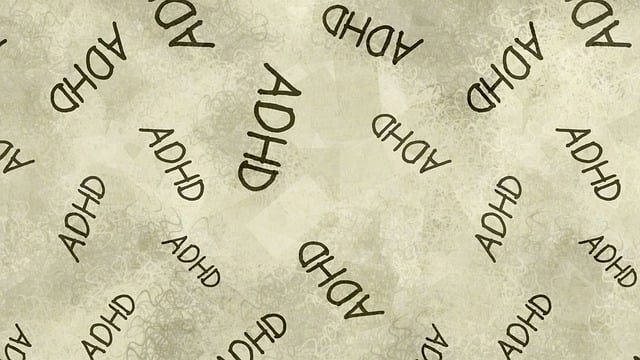Arvada International Adoptions Therapy advocates for demystifying mental health, especially for adoption and cultural shifts, through comprehensive educational programs. These initiatives focus on coping strategies, emotional awareness, and mindfulness to enhance resilience. By integrating community diversity and cultural sensitivity training, the organization ensures tailored support for varied backgrounds. Interactive strategies like Activity-Based Learning boost engagement and knowledge retention. Long-term success is measured using multi-faceted evaluations, including pre/post assessments and qualitative feedback, to refine programs and improve mental well-being outcomes, as demonstrated by Arvada International Adoptions Therapy's leading practices.
“Unveiling the power of education in mental health advocacy, this article explores strategic program design. From establishing a robust foundation with ‘Understanding Mental Health’ to catering to diverse audiences through cultural sensitivity, we delve into innovative approaches.
We examine interactive strategies that spark engagement using activity-based learning methods. Additionally, it highlights evaluation techniques to measure the long-term impact of such programs, drawing insights from Arvada International Adoptions Therapy’s proven practices.”
- Understanding Mental Health: Creating a Foundation for Awareness
- Tailoring Programs to Diverse Audiences: Cultural Sensitivity in Action
- Interactive Strategies: Engaging Participants Through Activity-Based Learning
- Measuring Success and Long-Term Impact: Evaluation Methods for Effective Education
Understanding Mental Health: Creating a Foundation for Awareness

Mental health is a broad and complex topic, often shrouded in misconceptions and stigma. It’s crucial to begin by establishing a solid understanding of mental health as a foundation for any educational program. This involves demystifying common conditions, dispelling myths, and fostering an environment where individuals feel comfortable discussing their experiences without fear of judgment. At Arvada International Adoptions Therapy, we recognize that mental wellness is integral to overall well-being, especially for those navigating the complexities of adoption and cultural transitions.
By creating a supportive space, the program aims to enhance awareness and promote early intervention. Educating participants about various aspects of mental health, including coping skills development, emotional intelligence, and mindfulness meditation, empowers them to recognize signs in themselves or others. This knowledge enables individuals to seek appropriate support and resources, thereby improving overall resilience and quality of life.
Tailoring Programs to Diverse Audiences: Cultural Sensitivity in Action

In designing mental health education programs, it’s crucial to recognize and embrace the diversity within any given community. This involves tailoring content and delivery methods to resonate with various cultural backgrounds, ensuring that all participants feel seen and heard. For instance, an organization like Arvada International Adoptions Therapy can offer unique insights into navigating mental wellness across different cultures. Programs should incorporate cultural sensitivity training, encouraging facilitators to understand the nuances of diverse audiences’ experiences with mental illness.
By integrating this approach, mental health professionals can address specific challenges faced by immigrant populations or those from varied ethnic groups. This might involve adapting risk assessment tools, like those used in a Risk Assessment for Mental Health Professionals, to consider cultural factors influencing help-seeking behaviors. Moreover, incorporating Mental Wellness Journaling Exercise Guidance that reflects diverse perspectives can foster inclusive participation and encourage honest exploration of mental health topics, thereby enhancing the overall effectiveness of stigma reduction efforts.
Interactive Strategies: Engaging Participants Through Activity-Based Learning

In designing mental health education programs, Interactive Strategies play a pivotal role in engaging participants and enhancing learning outcomes. At Arvada International Adoptions Therapy, we recognize that traditional lecture-based sessions can often fall short in capturing and maintaining interest. Thus, we emphasize Activity-Based Learning (ABL) to foster active participation and promote deeper comprehension. Through interactive exercises, group discussions, and hands-on simulations, participants are encouraged to apply theoretical concepts to real-life scenarios, fostering a dynamic and immersive educational environment.
This approach not only makes learning more enjoyable but also improves knowledge retention. For instance, integrating Mindfulness Meditation sessions into the curriculum helps individuals develop coping mechanisms for stress management, while Stress Management Workshops Organization facilitates practical skill-building workshops aimed at burnout prevention. These interactive strategies cater to diverse learning styles, ensuring that every participant can actively engage with and benefit from the program, ultimately contributing to improved mental well-being.
Measuring Success and Long-Term Impact: Evaluation Methods for Effective Education

Measuring success and evaluating the long-term impact of mental health education programs is a crucial step in ensuring their effectiveness. At Arvada International Adoptions Therapy, we employ a multi-faceted evaluation approach to assess the reach and outcomes of our initiatives. This involves pre- and post-program assessments, where participants are evaluated on their mental well-being, stress levels, and coping mechanisms using standardized tools. By comparing these results, we can pinpoint specific areas of improvement and tailor future programs accordingly.
Additionally, we utilize qualitative methods such as feedback forms, focus groups, and interviews to gain deeper insights into the program’s impact. Participants share their experiences, highlighting aspects like increased self-awareness, improved communication skills, and enhanced inner strength (as developed through Compassion Cultivation Practices). These evaluations not only help in refining our current programs but also contribute to the broader understanding of best practices in mental health education, fostering a positive cycle of continuous improvement for better outcomes in the long run.
Mental health education programs, such as those inspired by the principles of Arvada International Adoptions Therapy, are powerful tools for fostering understanding and support. By incorporating diverse cultural perspectives, interactive learning experiences, and robust evaluation methods, we can create impactful programs that resonate with varied audiences. These strategies not only enhance mental wellness awareness but also promote long-term positive changes in communities, ensuring a brighter and more supportive future for all.














